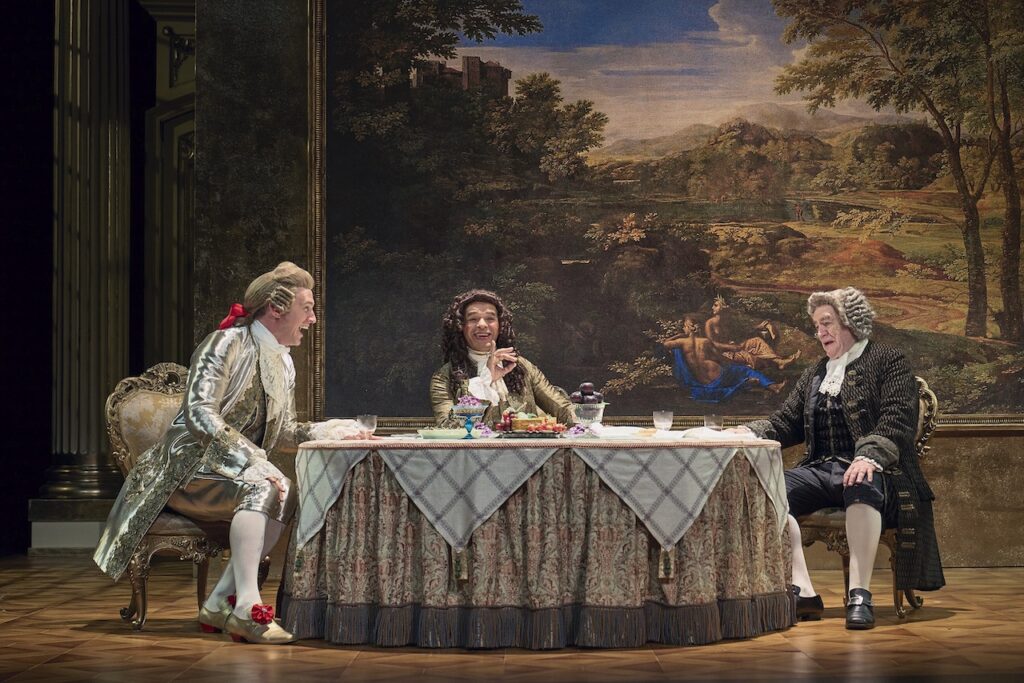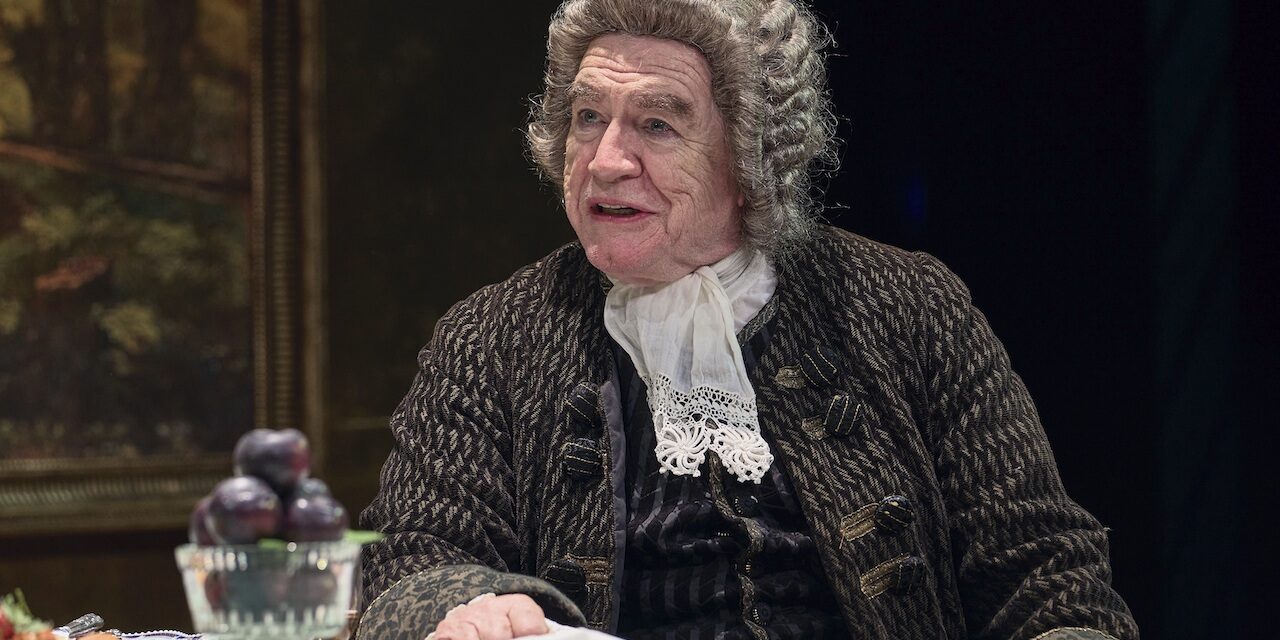
12 October – 28 October
It is indeed a rare treat to find a non-musical new play with more than a cast of four outside one of the great national institutions. ‘Non-musical’ is of course ironic given that the central character is one of the greatest composers in the western classical tradition. Financing theatre being what it is, only some big guns can attract the kind of investment needed. With Brian Cox and director, Trevor Nunn, Theatre Royal Bath Productions have wheeled out two of the largest guns currently available.
Set against one of the bloodiest wars in European history, this play by Oliver Cotton, is above all a play of ideas. We have on the one hand the conflict between ‘progress’ and the suffering that is considered by some – in this case Frederick The Great (Stephen Hagan) – to be an unfortunate, but necessary concomitant of progressive acts, and on the other side the claims of humanity that were being promulgated by the Enlightenment. This second idea, which is pursued by Bach throughout, is the source of inspiration and how this sits in a philosophy which at its extreme is nothing short of bestial, the antithesis of progress.
Oliver Cotton’s Bach is a jobbing musician who finds himself in possession of a divine spark. Where it comes from and how he is infected with it is a mystery he grapples with constantly. It is nevertheless his certainty that it is God given. Brian Cox as Bach rankles at the idea of having to present himself at Frederick’s court and pay homage to a man he considers to be the author of the enormities suffered by Silesia, including the rape of the blind daughter of one of his neighbours. He is man who wears his talent lightly and his heart on his sleeve – except, at his son Carl’s urging, whilst at court. He is at home with and generous to the talents of other musicians whilst displaying a prodigious musical memory. A deeply devout man, he has as his guiding principle, ‘I know that my redeemer liveth’. Having for the most part to bite his tongue in court, when Frederick tells him to speak his mind, the dam of his outrage, if not quite burst, at least releases the sluice-gates of his indignation.

For someone regarded by history as ‘great’ in the same manner of our own Alfred, an intellectual and a warrior, we find Frederick here a little petulant and somewhat self-regarding, albeit with a desire to do good. His court at the time of the play is shown as a centre of learning and the arts, with both Bach (and son) and Voltaire adding lustre to its reputation. At the same time this court of the talents is filled with obsequious sycophants.
Robert Jones’ rich, umber settings of the court contrast with the simple, almost ascetic home of Bach; a rough wall with crucifix, a table and a harpsichord.
The first act left me wondering where the play was heading. Having established that Bach was no friend of warmongers it danced around the idea that not to go would be a blow both to his reputation and that of his son, Carl (Matthew Burns), who was at that time in the employ of Frederick as a leading court musician. The meat of this play is in the taut conversations between Bach and Frederick which claim our attention as the bet about Bach’s ability to provide fugues to a theme by Frederick – the ‘score’ – is played out.
★★★★☆ Graham Wyles, 20th October, 2023
photographer credit: Manuel Harlan


